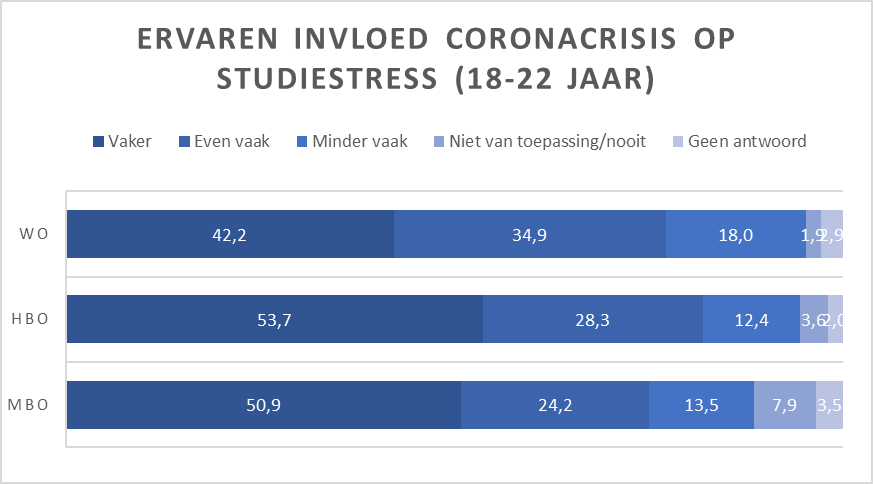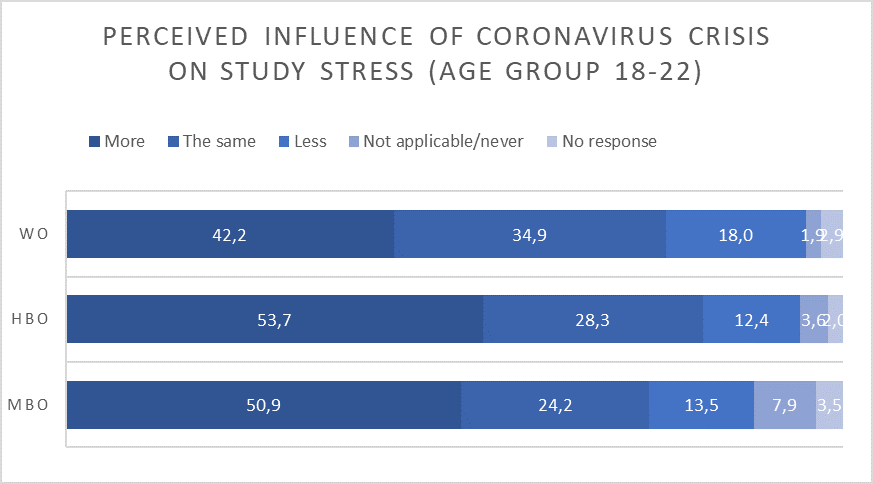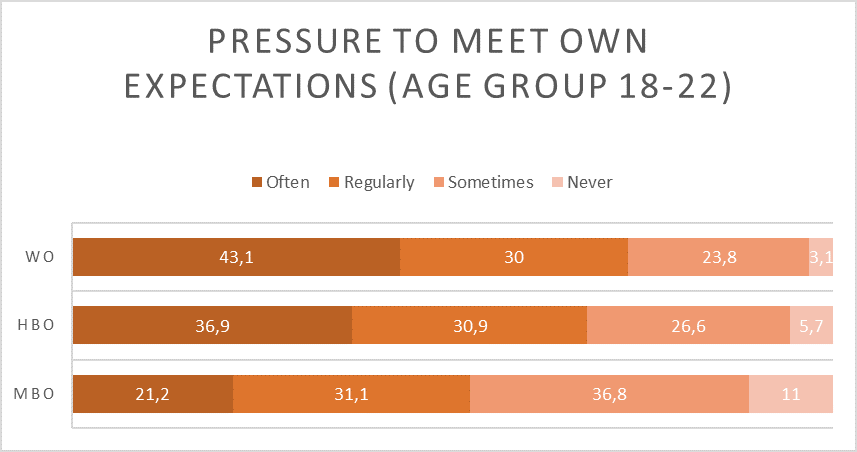Stress more prevalent among students, says Statistics Netherlands

CBS surveyed more than 8,000 people aged 12 to 25 about their wellbeing and mental health during the Covid-19 pandemic. The questionnaire was distributed from February to April 2021, which corresponds to the third wave of the pandemic.
CBS confirms that the coronavirus crisis has hit young people hard. The number of people aged 18 to 25 suffering from mental health issues has grown from 12 to 24 percent. “This is characterised by gloom, depression, nervousness, agitation and unhappiness,” writes the bureau.
In-person education "very much" missed
The higher the level of education, the more upset students were about being unable to go to campus during that lockdown. About 40 percent of those enrolled in universities of applied sciences said they missed in-person classes "very much", while 50 percent of those studying in research-oriented institutions, like Utrecht University, said the same.
Additionally, almost 50 percent of all students declared to be more stressed about their studies compared to before the coronavirus outbreak. The number of students saying they are less stressed out than before is very small: one in eight in universities of applied sciences and over one in six in research-oriented higher education.
 © HOP. Source: CBS.
© HOP. Source: CBS.
Stress about the future increases as students get further advanced in their study programme, CBS observes. 40 percent of 19-year-old university students are sometimes stressed out about their future career and 23 percent feel the same about housing. “Among 23-year-old research-oriented higher education students, the figures are 68 and 50 percent respectively.”
But the source of stress is not always external. Students also struggle to meet their own expectations. Those enrolled in vocational institutions are a bit more relaxed about this than students in universities of applied sciences and research-oriented universities.

© HOP. Source: CBS.
Social media
Only one in ten young people occasionally experience stress from social media. According to the statisticians, students in higher education are somewhat more susceptible to this. Almost 25 percent of university students feel agitated when they get a message on their phones that they cannot read straight away, as opposed to 15 percent of students in universities of applied sciences. Likes, shares and reactions to posts give "a good feeling" to almost 50 percent of university students.
The results of this survey are somewhat in line with previous studies, CBS writes. “The overall picture is that the mental health of young people in the Netherlands has declined because of the coronavirus crisis.”
Previous studies
Among the previous studies mentioned by CBS is the survey conducted by the National Institute for Public Health and the Environment (RIVM) alongside Trimbos Institute. Published in November 2021, that report claims that half of higher education students in the Netherlands have mental health issues. That's roughly twice as many as CBS is reporting now.
Those results shocked student organisations and higher education institutions. The Dutch Minister of Education, Ingrid van Engelshoven, emphasised that establishing a new lockdown for higher education institutions would be detrimental to students' mental health.
But two professors were critical of the sample used by that study, as relatively few students completed the questionnaire: only 11.7 percent of those approached actually answered the questions, which would distort the findings. One of those professors, Peter van der Velden, trusts CBS' sample a lot more, as they got a response rate of 43 percent.